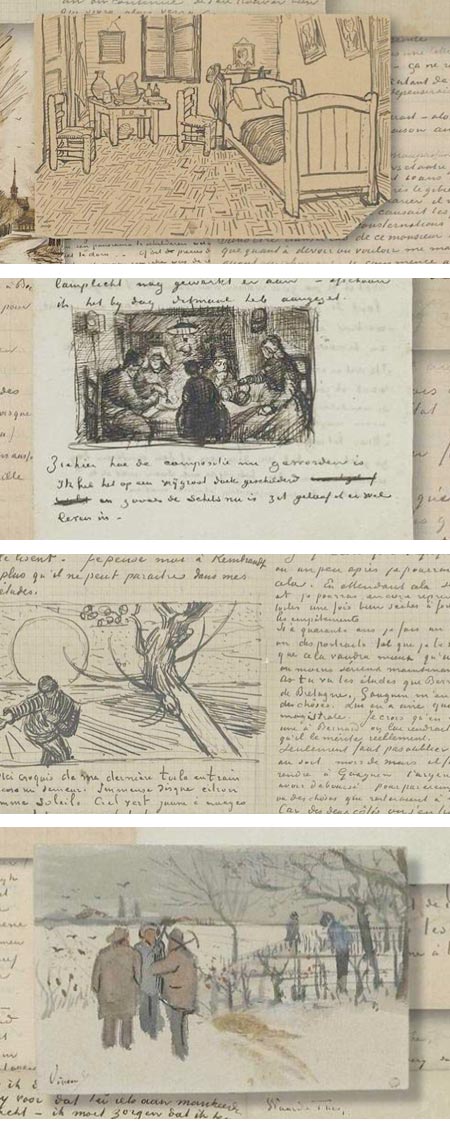

In 1878, he had written to Theo, ""It must be good to die in the knowledge that one has done some truthful work."" By the time he put a hole in his chest, he knew he had done that. Anguished by loss of faith after planning to be a priest, disappointed in several once-promising love affairs, he was also so tormented by poverty that one of his artistic breakthroughs occurred when, without proper colors, he brushed in ""a garden, green by nature, but painted without actual green, nothing but Prussian blue and chrome yellow."" Whether van Gogh's suicide was the inevitable culmination of depression, or due to epilepsy or to professional frustration (he is remembered, beyond his pictures, for razoring off part of his ear), his letters reveal that the end was long contemplated. Unable to sell his brilliant canvases, he was utterly dependent upon his younger brother, Theo, to whom most of the letters collected here are written. Van Gogh was 37 and on the edge of fame when, in 1890, he shot and killed himself.


 0 kommentar(er)
0 kommentar(er)
